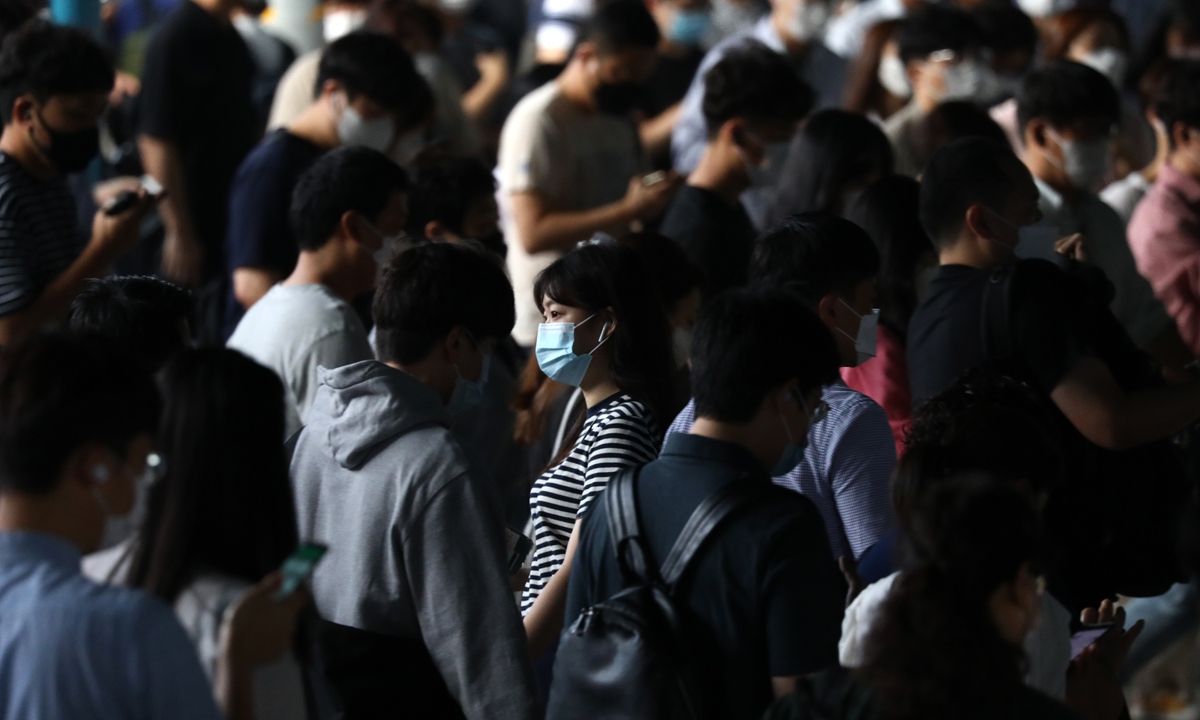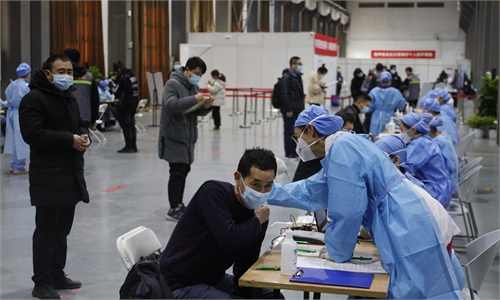34% of COVID-19 survivors undergo neurological issues
Mental health impact ‘substantial’
One in three people who overcome COVID-19 suffer from a neurological or psychiatric diagnosis six months on, according to the largest study so far published on the mental toll that long-COVID-19 takes on survivors.

Studying the health records of 236,379 patients who had recovered from COVID-19, they found that 34 percent were diagnosed with a neurological or psychiatric condition within six months. The most common conditions were anxiety (17 percent of patients) and mood disorders (14 percent).
For 13 percent of patients the disorders were their first diagnosis of a mental health issue.
Incidence of neurological disorders such as brain hemorrhage (0.6 percent), stroke (2.1 percent) and dementia (0.7 percent) was lower overall than for psychiatric disorders but the risk for brain disorders was generally higher in patients who had severe COVID-19.
The authors also examined data from more than 100,000 patients diagnosed with influenza and more than 236,000 diagnosed with any respiratory tract infection. They found there was overall a 44 percent greater risk of neurological and mental health diagnoses after COVID-19 than after flu, and a 16 percent higher risk than with respiratory tract infections.
Paul Harrison, lead author from the University of Oxford, said that while the individual risk of neurological and psychiatric orders from COVID-19 was small, the overall effect across the global population could prove to be "substantial."
"Many of these conditions are chronic," he said.
"As a result, health care systems need to be resourced to deal with the anticipated need, both within primary and secondary care services."
Patients hospitalized with severe COVID-19 were at great risk of developing long-term conditions. For example, 46 percent of patients who needed intensive care were diagnosed with neurological or psychiatric conditions within six months of recovery.
The data showed 2.7 percent of people needing intensive care suffered a subsequent brain hemorrhage, compared to 0.3 percent of people who weren't hospitalized. And nearly 7 percent of those needing ICU care suffered a stroke, compared with 1.3 percent of patients who didn't. Further research was needed on the long-term neurological and psychiatric outcomes among patients.

Commuters wear masks on the subway on September 15, 2020. Affected by the epidemic, "difficulties in employment" and "social restrictions" have brought tremendous pressure to young South Koreans, making their mental health a red light. Statistics show that in the first half of the year, self-injury behaviors were common among Koreans in their 20s and 30s, and the number of people receiving depression diagnosis and treatment continued to increase. Photo: VCG
Authors said the research, printed on Wednesday in The Lancet Psychiatry journal, proved that COVID-19 patients were significantly more likely to develop brain conditions than those suffering from other respiratory tract infections.Studying the health records of 236,379 patients who had recovered from COVID-19, they found that 34 percent were diagnosed with a neurological or psychiatric condition within six months. The most common conditions were anxiety (17 percent of patients) and mood disorders (14 percent).
For 13 percent of patients the disorders were their first diagnosis of a mental health issue.
Incidence of neurological disorders such as brain hemorrhage (0.6 percent), stroke (2.1 percent) and dementia (0.7 percent) was lower overall than for psychiatric disorders but the risk for brain disorders was generally higher in patients who had severe COVID-19.
The authors also examined data from more than 100,000 patients diagnosed with influenza and more than 236,000 diagnosed with any respiratory tract infection. They found there was overall a 44 percent greater risk of neurological and mental health diagnoses after COVID-19 than after flu, and a 16 percent higher risk than with respiratory tract infections.
Paul Harrison, lead author from the University of Oxford, said that while the individual risk of neurological and psychiatric orders from COVID-19 was small, the overall effect across the global population could prove to be "substantial."
"Many of these conditions are chronic," he said.
"As a result, health care systems need to be resourced to deal with the anticipated need, both within primary and secondary care services."
Patients hospitalized with severe COVID-19 were at great risk of developing long-term conditions. For example, 46 percent of patients who needed intensive care were diagnosed with neurological or psychiatric conditions within six months of recovery.
The data showed 2.7 percent of people needing intensive care suffered a subsequent brain hemorrhage, compared to 0.3 percent of people who weren't hospitalized. And nearly 7 percent of those needing ICU care suffered a stroke, compared with 1.3 percent of patients who didn't. Further research was needed on the long-term neurological and psychiatric outcomes among patients.



